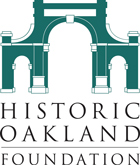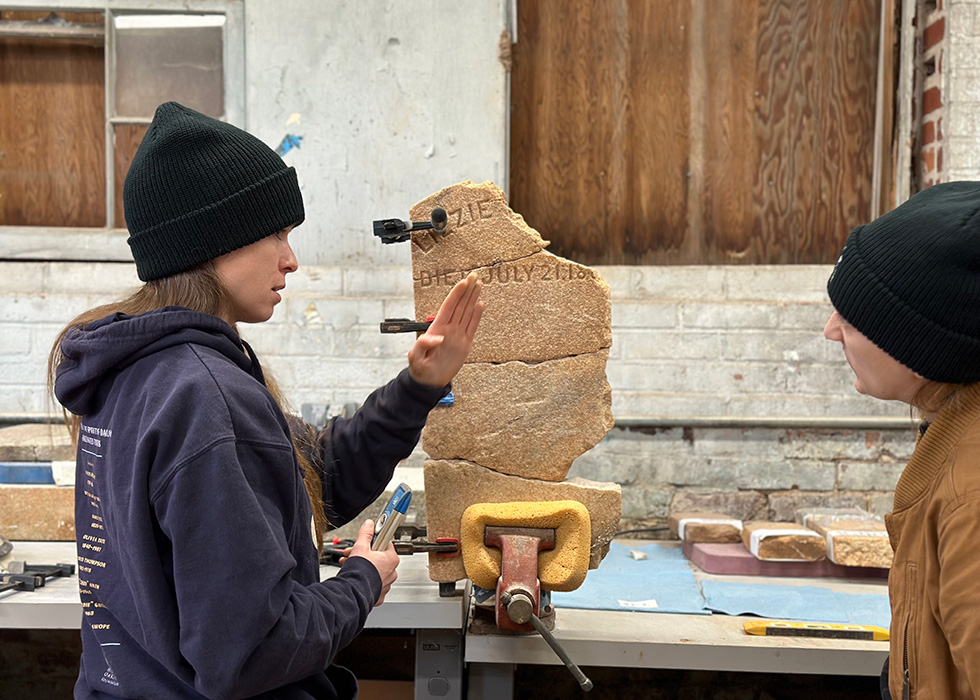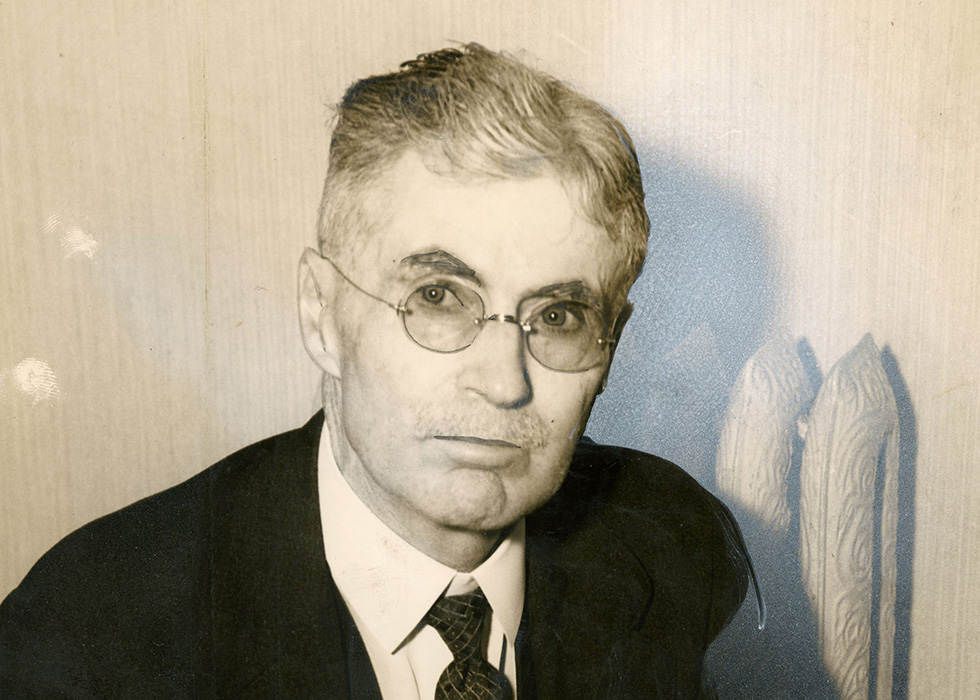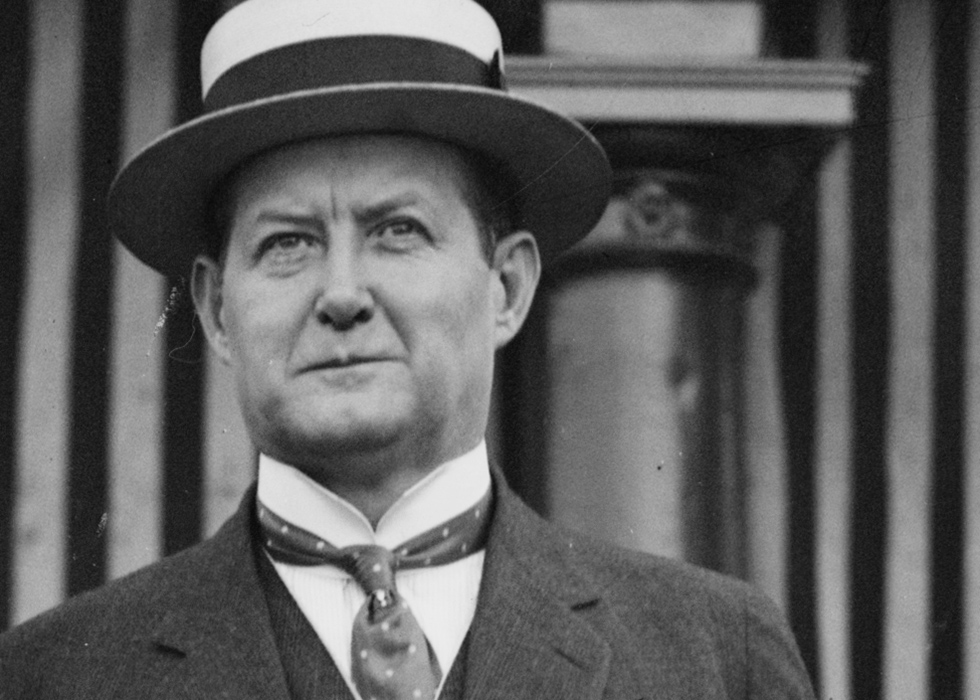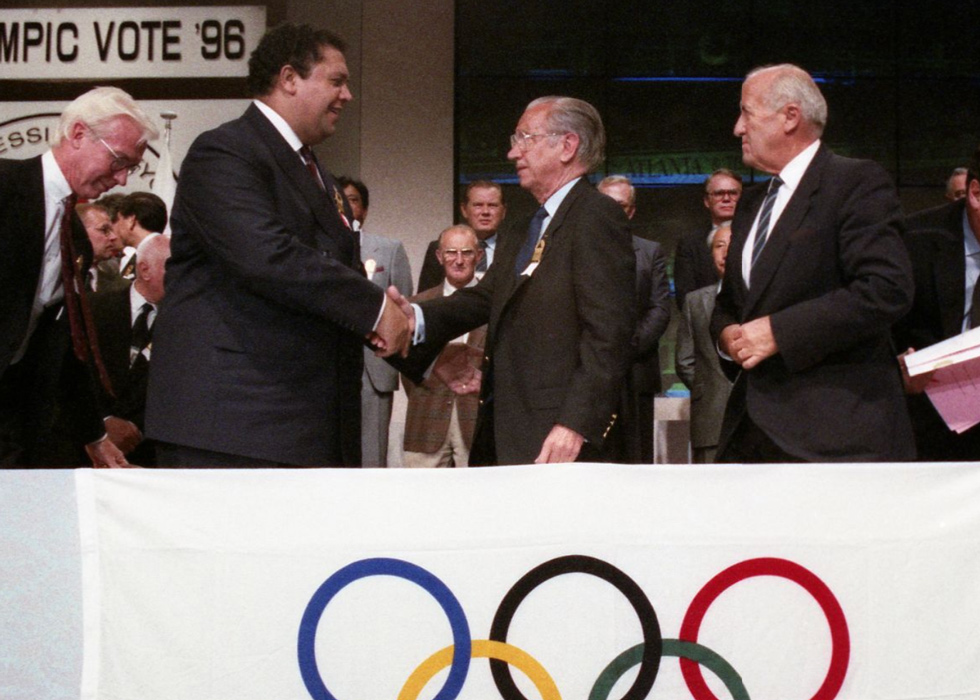
Resident Spotlight: Maynard Jackson and the 1996 Summer Olympic Games
With the 2022 Winter Olympics happening in Beijing, we look back at the Atlanta Games and how Oakland connects to this global celebration!
Sports are a fundamental part of Atlanta’s history and culture. Atlanta is home to five professional sports teams – the Falcons (football), the Braves (baseball), the Hawks (men’s basketball), the Atlanta United (soccer), and the Atlanta Dream (women’s basketball). Many collegiate sports teams also call Atlanta home, notably the Georgia Tech Yellow Jackets and the Georgia State Panthers.
Many Oakland residents were influential in the Atlanta sports scene, whether they were athletes themselves or avid fans of the local teams. Oakland sports figures, pioneers, and trailblazers include Bobby Jones, Ivan Allen Jr., Henry Durand, and Tom Johnson. Many of these residents were involved in local or national sports, but one stands out for bringing the world’s biggest sporting event to Atlanta.
Maynard Holbrook Jackson Jr. was born in Dallas, Texas on March 23, 1938. Even though he did not move to Atlanta until he was seven years old, his family’s roots ran deep here. His mother, Irene Dobbs Jackson, was a French professor at Spelman College and the daughter of John Wesley Dobbs, an African American political and civic leader in Atlanta. His father, Maynard Jackson Sr., was a pastor at Friendship Baptist Church.
 Jackson entered into the political area in 1968 when he ran for a spot in the U.S. Senate against incumbent Herman Talmadge. Though he won less than a third of the vote, he garnered most of the votes in Atlanta and became a powerful force in Atlanta politics. Jackson served as vice mayor under Mayor Sam Massell from 1970 to 1974. In 1974, Jackson became the first African American mayor of Atlanta and went on to serve three terms, 1974-1982 and 1990-1994.
Jackson entered into the political area in 1968 when he ran for a spot in the U.S. Senate against incumbent Herman Talmadge. Though he won less than a third of the vote, he garnered most of the votes in Atlanta and became a powerful force in Atlanta politics. Jackson served as vice mayor under Mayor Sam Massell from 1970 to 1974. In 1974, Jackson became the first African American mayor of Atlanta and went on to serve three terms, 1974-1982 and 1990-1994.
The journey for Atlanta’s Olympic bid began in 1987 and was spearheaded by Billy Payne, a real estate lawyer, with the support of Mayor Andrew Young. Jackson, though not the mayor of Atlanta at that time, assisted Young and Payne in their efforts. After Jackson was re-elected as mayor in 1990 he continued to push for Atlanta’s bid and would go to represent Atlanta in Barcelona for the 1992 Summer Olympics.
Atlanta was chosen for the 1996 Summer Olympics at the 96th International Olympic Committee Session in Tokyo, Japan on August 18, 1990. The Olympics coming to Atlanta was a big deal. Atlanta was originally considered a long shot to hold the Olympics as the United States had hosted the Olympics just 12 years earlier in Los Angeles. Payne, Young, and Jackson presented for Atlanta as a city that overcame racial tensions and regional poverty to become a global city.
Many of the structures that were built for the Olympics still stand today and are an important part of many Atlantan’s daily lives.
The Olympic games had a huge impact on Atlanta. Many of the structures that were built for the Olympics still stand today and are an important part of many Atlantan’s daily lives. Dormitories that were built for the Olympic Village became housing for Georgia State University students. These dorms are now being used by Georgia Tech students. The Centennial Olympic Stadium was converted into Turner Field where the Atlanta Braves played from 1997 until 2016 when the property was sold to Georgia State University. The stadium is now home to the Georgia State Panther football team and hosts the graduation for Georgia State University students each spring. Another venue built for the Olympics was the Georgia Tech Campus Recreation Center, which hosted the swimming, diving, water polo, and synchronized swimming. Many of the existing sports structures were also upgraded or replaced with new facilities.
The Summer Olympics revitalized downtown Atlanta and strongly impacted the economy as it brought in a revenue of over $5 billion. The Olympics also led to many buildings being converted into lofts and helped to reverse decades of decline. Pedestrian walkways also improved as well as basic additions such as more streetlights.
One of the most tangible legacies of the 1996 Summer Olympics is Centennial Olympic Park. Located in the heart of Atlanta, the 21-acre plaza was previously a spot of urban decay. It now boasts a park that many people visit, including Atlantans who remember playing in the fountain. Many offices, hotels, and office structures were built around the park and continue to bring in revenue. The 1996 Summer Olympics also planted seeds for many new tourist attractions, such as the Georgia Aquarium.
The 1996 Summer Olympics provided a way to give Atlanta new energy, revitalize neglected neighborhoods, and boost the economy. The 1996 games are just another aspect of Mayor Maynard Jackson’s legacy and impact on Atlanta.
Featured image: AJCNL714-004b, Atlanta Journal-Constitution Photographic Archives. Special Collections and Archives, Georgia State University Library.
